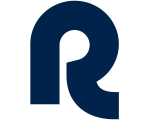The standard rate of VAT is 7.6% (due to rise to 8% in 2011). This is the lowest rate of VAT in Europe. Some specific supplies and services, including food, medicine, newspapers and books, are subject to a lower rate of 2.4% (2.5% from 2011). VAT on hotel accommodation is levied at 3.6%. There are a number of sectors that are exempt from VAT altogether, including public health and social services, education and gambling.
The Swiss federal tax system includes a procedure for obtaining refunds of Swiss VAT incurred by non-Swiss companies in the course of their business. VAT refunds can only be obtained once per year and not all foreign companies may necessarily be entitled to a refund. VAT refunds are only available to foreign companies or individuals not registered as taxable persons or entities for purposes of Swiss VAT.
The EU VAT Directives
Although Switzerland is not a member of the European Union, it is a member of the Economic Free Trade Association (EFTA) and the signing of the Free Trade Agreement in 1972 formed the basis of economic relations between Switzerland and the European Union countries. Switzerland therefore largely complies with European VAT legislation, as defined under the Sixth VAT Directive (2006/112/EC). VAT-registered independent businesses operating from Switzerland will therefore be subject to the VAT directive, to the degree that the Swiss authorities are bound by it in putting in place standard and reduced rates within the permitted range, and setting the national rules regarding when and how VAT should be charged by registered businesses and individuals.
Under new rules coming into force with regard to the EU (and therefore having an impact on Switzerland, as described above) between 2010 and 2015, business to business (B2B) supplies of services will be subject to VAT in the country in which the consumer is located, rather than the supplier's country of residence, with the business consumer required to account for VAT using the reverse charge mechanism (whereby they act as both the supplier and the consumer, charging themselves the VAT where appropriate, and then claiming it back). For telecoms, broadcasting and electronic services these changes are delayed until January 1, 2015.
For business to private consumer (B2C) supplies of services, the place of taxation with regard to VAT will remain as the supplier's location.
There will, however, be certain exceptions, where the general rules do not apply, and specific rules will be in place, to reflect that the place of taxation should be where the service is consumed. Exempted areas will include: the electronic supply of services, telecommunications and broadcasting, certain catering and hospitality services, scientific and educational supplies, and cultural and sporting services and supplies.
This article is an extract from Personal Business Tax Guide , dated 4th January 2011, for the latest version please click here .


